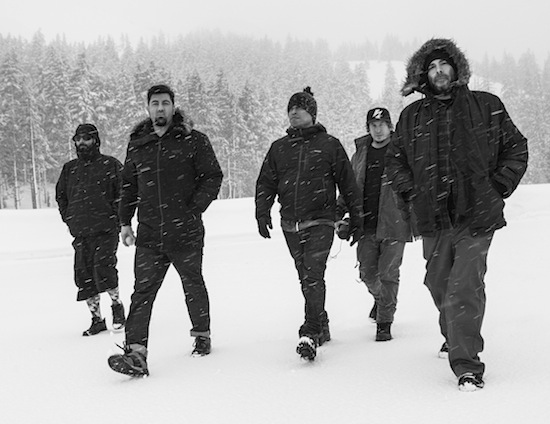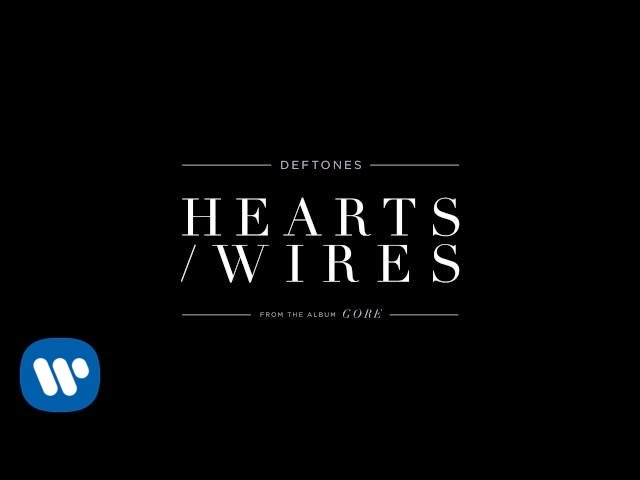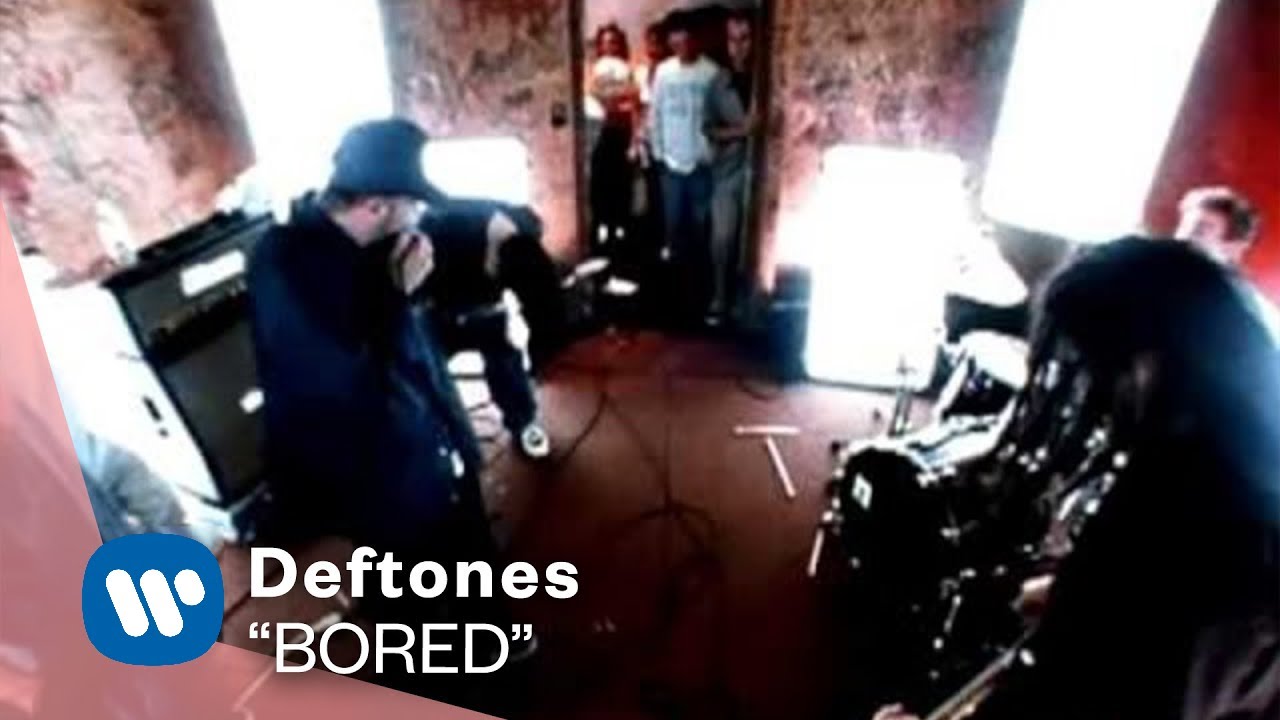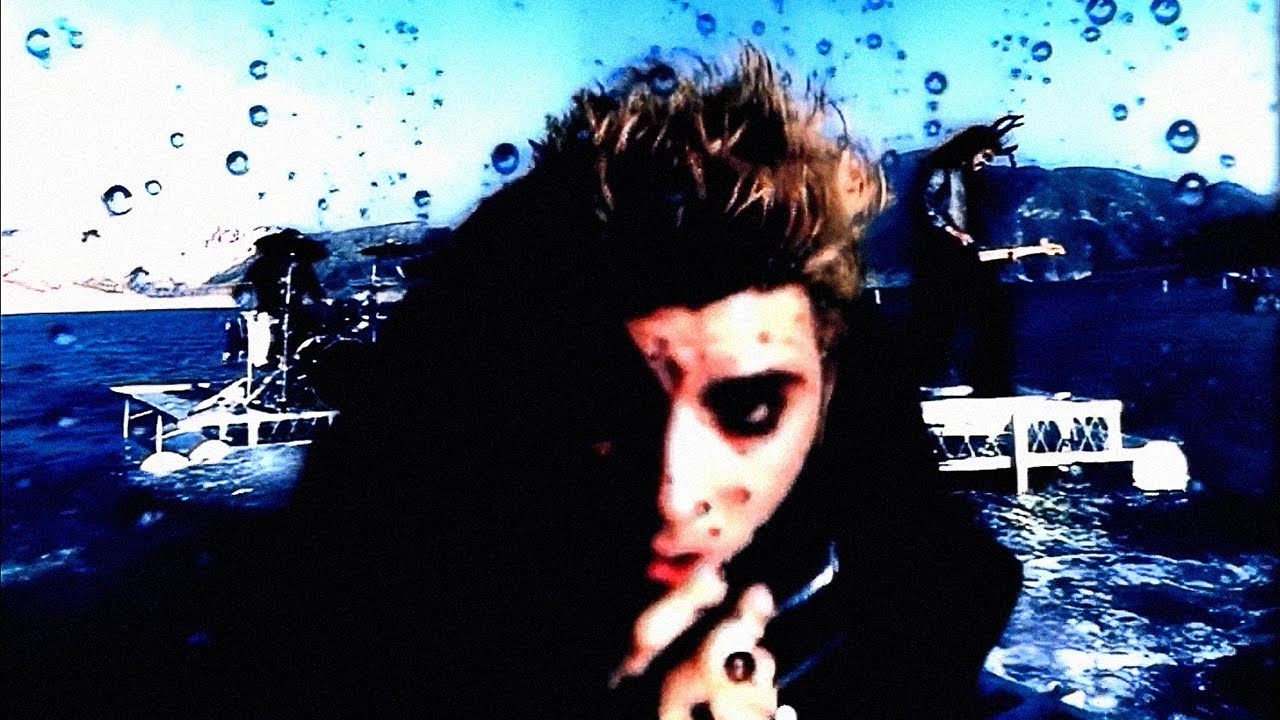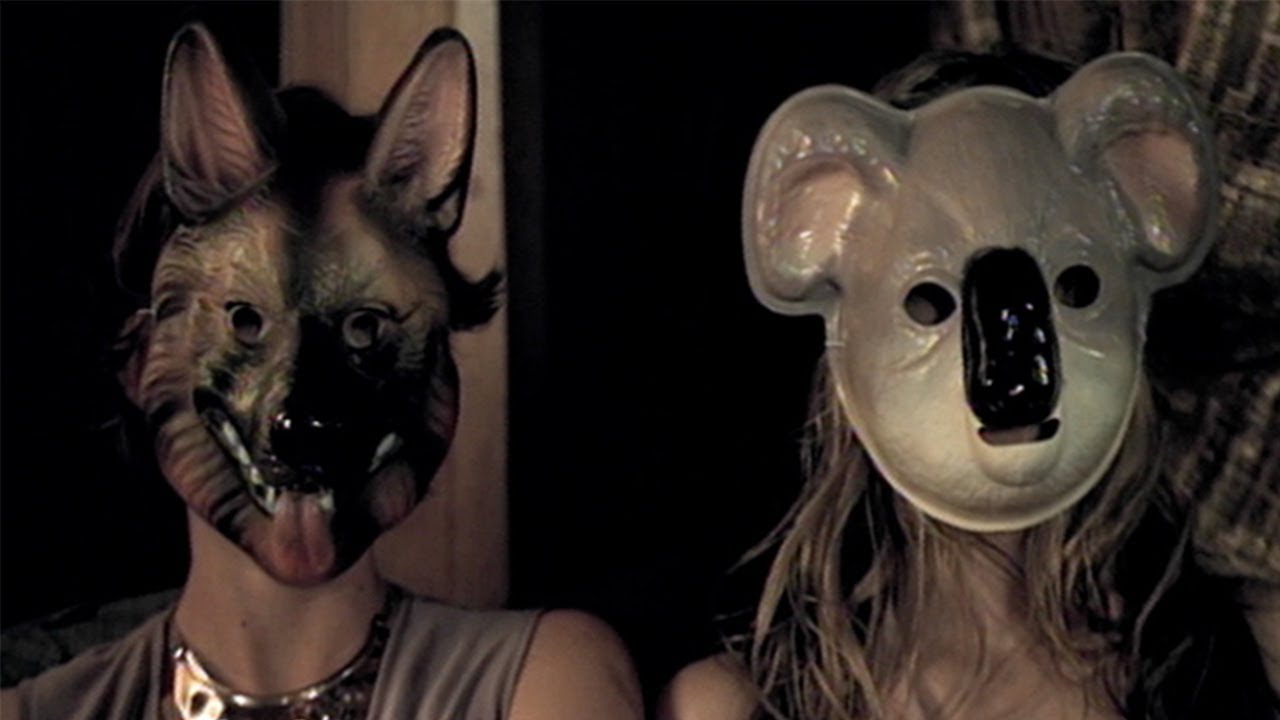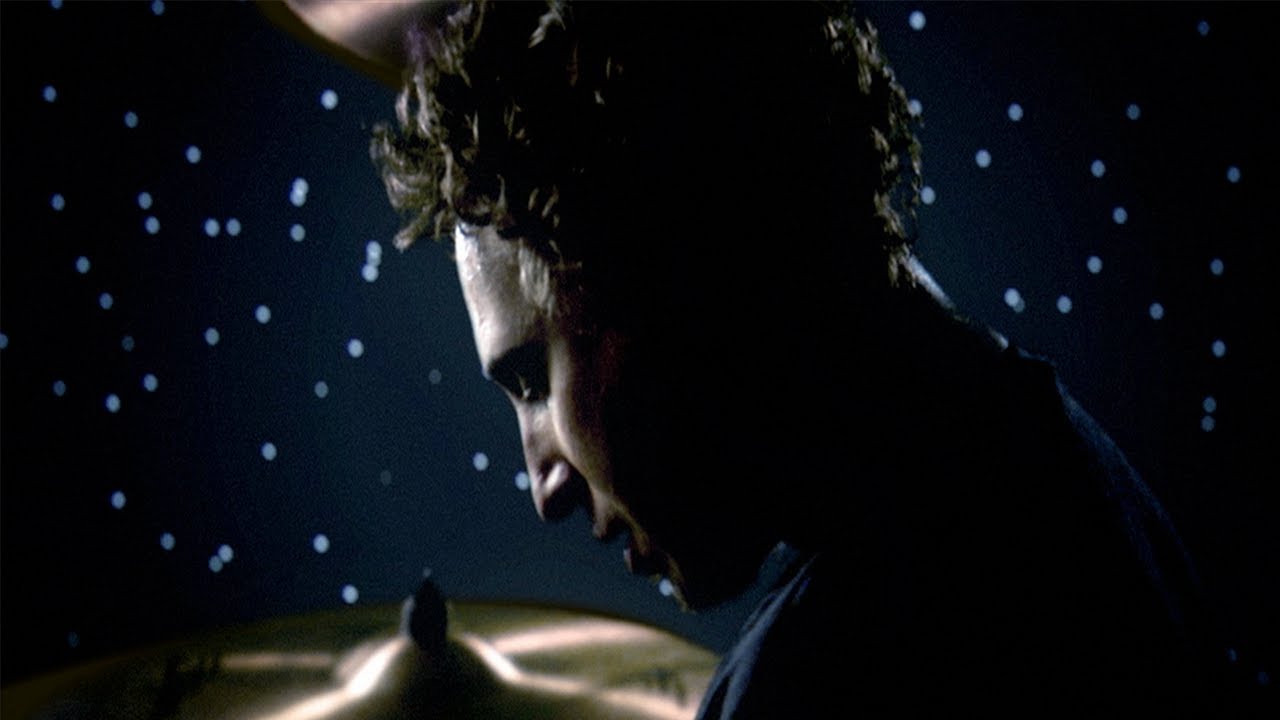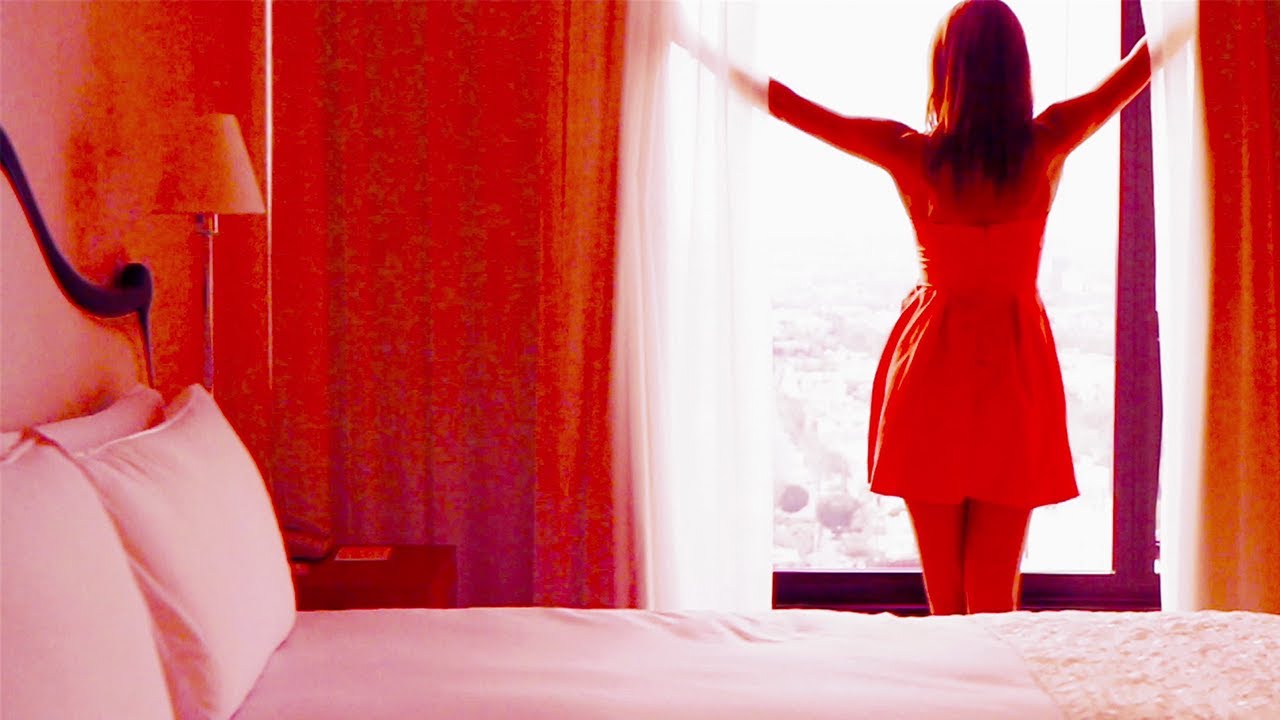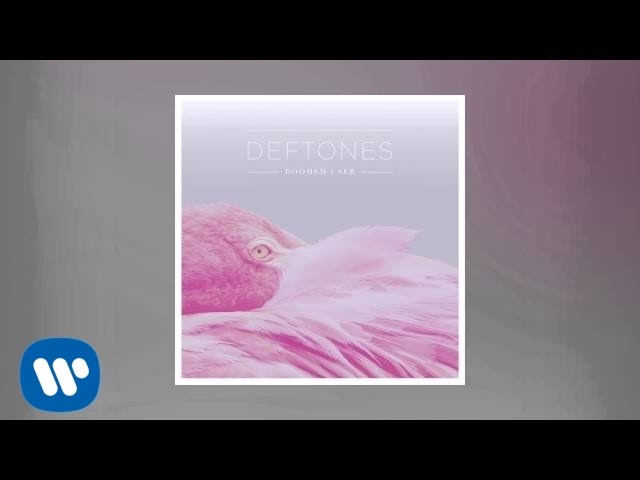All band portraits by Frank Maddocks
Forming in Sacramento in 1988, Deftones broke through in the mid-1990s as part of the nu metal crowd, a group of rap-rocking wannabes who, with a little luck, might just make it alongside fellow Californians Korn and their baggy-trousered peers. But a shift in aesthetic with 2000’s texturally rich, uncommonly intimate White Pony album, the band’s third, set them on a new path.
Now regarded as experimenters within their scene, the five-piece – the founding core of Chino Moreno (vocals, guitar), Chi Cheng (bass), Stephen Carpenter (lead guitar) and Abe Cunningham (drums) having been formally joined by Frank Delgado (keys and turntables) – continued to push at the boundaries of mainstream metal. But success did not always follow. The band’s self-titled LP of 2003 didn’t strike the same sweet spots as its predecessor, and 2006’s Saturday Night Wrist was a limp collection of comparatively makeweight cuts. Change had to come.
But when it did, it was spurred by tragedy. Cheng was involved in a car accident in late 2008, putting him in a minimally conscious state. He never recovered, and died on April 13, 2013. Before his passing, Deftones completed a powerful sixth LP, Diamond Eyes (2010), and equally impressive seventh, 2012’s Koi No Yokan, with former Quicksand member Sergio Vega on bass.
2016 sees Deftones release their eighth studio LP, Gore. The Quietus spoke to frontman Moreno, to explore the band’s past, tracing the line from nascent jams in Carpenter’s garage to becoming one of the most acclaimed rock acts of their generation.
Garage Band: Starting Out Without A Care
Chino Moreno: I’ve known Stephen since we were ten years old, and Abe since I was eleven, or twelve. Our early days, in the late 1980s, were a good, carefree time. For me, I had no idea that I’d ever make a career out of music – I was just happy that the other dudes let me try to sing, because I didn’t know how to, and I guess you could say that I’m still learning. But that was my first experience, playing any kind of music.
When we started the band, I actually wanted to be the drummer. I had a drum set, and I took it over to Stephen’s house, and set it up in his garage. I jammed with him: me on the drums, him on guitar. But then one day after school I brought Abe over to his house, and he played the drums, and obviously just slayed. So I was out of a job, at that point. But they said, “Hey, if you still want to be in the band, you can be the singer.” My first response was: “What are you talking about? I don’t know how to sing.” But they thought I could figure it out, and that was it. There was never any big idea about where we’d go – we were just having fun in the garage, not knowing what was to come.
I guess if I had remained the drummer, we probably wouldn’t be here, having this conversation now. I don’t know how long that would have lasted, because to this day I can’t play the drums all that well. I just like to thump things. But that’s one of the things that worked out, and I had to learn something else, and I’m glad I did at this point.
Chi joined the band later. We started with a guy called Dominic (Garcia) on bass, who I’d known since third grade. But at that point, when Chi came in, we were still in the garage – we’d not really played any shows. Nevertheless, we felt our circle was complete at that point, and we did start doing proper live shows. They were terrible, but that was when I felt we had this solid unit, and maybe began to see some sort of future for us. We didn’t know exactly what we were doing, but we did know that we were doing something right.
Crazy Club Carnage: Touring Adrenaline With Ozzy Osbourne
CM: At that time, our shows were pretty intense. I just wanted to be the craziest frontman that I could, the crazier the better. So I was all over the place, and I felt that at every show I had to leave an impression on people, whether that was doing a flip and landing on the drums, or, like, I used to really abuse myself. Anyone who saw one of our early concerts will tell you how insane those shows were, pre- and during the time of Adrenaline. And that was to do with being young and dumb, and living like there was no tomorrow, and that was the attitude that we had.
In my head, at least, I didn’t think we’d have the chance to make a second record, so I was taking the chance to go and play a show anywhere, and make sure that we left our mark on people, by that show being as chaotic as possible. We weren’t even that concerned about the songs, playing them that good – we just wanted to make people remember us. And we did that, for the most part.
During that time, one of the big opportunities we got was opening up for Ozzy Osbourne, on his arena tour in the US. That was one of our earliest breaks. We were playing small clubs at the time, to like five people some nights. We got asked to do the tour, with Ozzy headlining, Korn as main support, and us as the opening act. It was difficult, because a lot of people did not care for us – the people who came for Ozzy, they were mostly there just to see Ozzy. They didn’t want to hear this loud, young, obnoxious band, especially in a half-full arena, at the time that we were playing.
We were straight up this crazy club band, and we were trying to play arenas, and it was a trip for us. It felt like we’d made it, but then also it was a joke – maybe we shouldn’t have made it? Maybe we should have stayed in the clubs? That’s where we were shining, y’know.
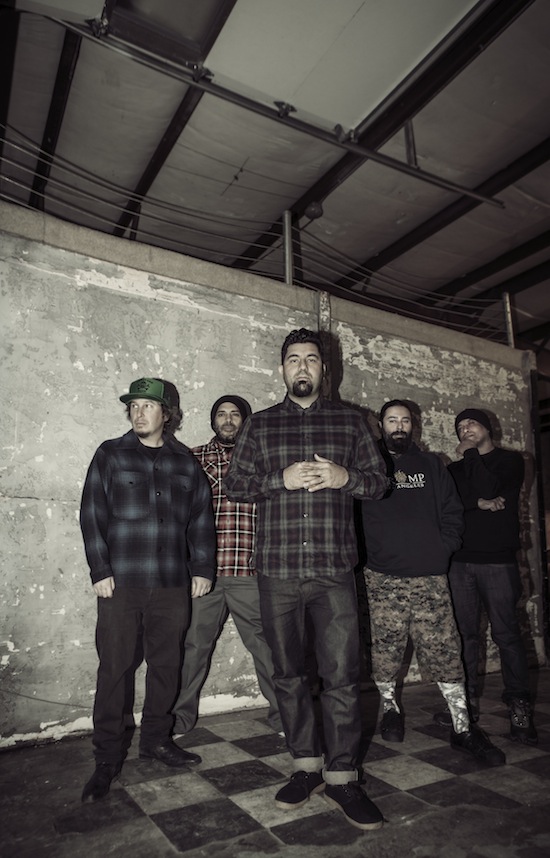
Band portrait by Frank Maddocks
The Not-So-Difficult Second Record: Around The Fur And MTV
CM: We started to get MTV play for ‘My Own Summer’, and ‘Be Quiet And Drive’, but it wasn’t like an overnight success. That said, when we were doing Around The Fur, everything felt better than it had on Adrenaline. Just to make a second record was a great opportunity, and we were not going to let anybody down. We felt like we had to make one of the best records possible, and I still feel like it’s one of the best records we’ve ever made.
One of the main reasons behind that is that we had nothing to lose at that point. We were already way more successful than I thought we should have been, with Adrenaline, so we really did have nothing to lose – and when I hear that record today, that’s what I hear. I see it in the way we looked, too. We were having the time of our lives, and that essence of being young and just not giving a shit, making music exactly how we wanted to, was permeating everything we did. The album was a departure both from what Adrenaline was, and what that sort of music was doing at the time, so we felt on top of the world.
The British Invasion: Glastonbury 1998 And Overseas Success
I remember Glastonbury perfectly. It was raining, and Muse played before us. That was actually our first time going out to Europe. Early on, we never thought our music would leave our city; then later, that it’d never go overseas. And now here we are, in the UK, playing these concerts, and festivals like Glastonbury. All of these huge bands are around us, and this is a setting that we’ve never been in before. We’d never been on a festival stage before.
Supporting Around The Fur in Europe was a real shock to us, in a good way. We were wowed that there were all these people across the ocean who were completely in sync with the music we were making. I did not expect that reaction from the UK, and Europe in general. Since that day, I’ve felt like we have this connection with Europe, that’s not been broken.
People ask me if I’m influenced by British music, and I suppose I grew up listening to mostly British music – from new wave stuff through to heavy metal. Like, when I got into metal, it was Black Sabbath. I never really got into a lot of American rock. I appreciate some of it, but not much! Most of the great new wave music was coming out of Britain, and Germany. So maybe those influences have made their way into our music, and perhaps that’s why we have this connection with people in Europe. But maybe it’s something cosmic. I mean, as a kid growing up in a lower-class neighbourhood, where everyone around me was listening to hip hop, what was I doing listening to new wave, and why was that my favourite music? I don’t know why, but it just spoke to me.
Change In The House Of ‘Tones: White Pony (2000) And Embracing Experimentation
CM: We put ourselves in a bit of a problematic position with White Pony. We made that record with absolutely no interference from our label, Maverick. They didn’t hear anything until it was done, and we gave it to them. And they were pleased with it, and released it as it was. But in their minds, they wanted to shoot us into the stratosphere. We were told that we were primed to be there, but they just needed that one song to do it. So they said to us, “Why don’t you take this song from off the record,” which was ‘Pink Maggit’, “and use the chorus but rewrite it into a nu metal song.” At least, that’s pretty much what they said.
We naturally resisted them. The record was out, and the critics liked it, and we were getting great reviews because it was something left of centre. But the label kept on asking. They offered us a million dollars to make this video with Paul Hunter, who’d made videos for Eminem, and this and that and whatever. And we looked around and saw Limp Bizkit and Papa Roach selling millions and millions of records, and at that point we’d not sold a million records. So, we decided that we had nothing to lose. The record was already out, we had the songs we wanted, so we wrote what became ‘Back To School’ in literally an hour. It was super fast, and I was trying to show how easy it was to write a formulaic, simple rap rock song, that was like all those other bands.
But when all’s said and done, we took a shot at it, and did it work? Maybe. But the original album still exists as we wanted it to, and the people who are into our group, they know that.
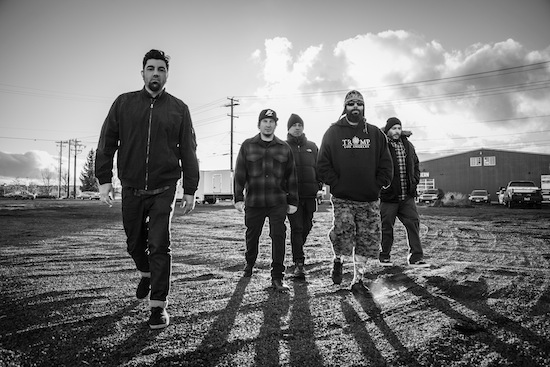
Band portrait by Frank Maddocks
Got The Taste: Winning A Grammy For ‘Elite’
Honestly, I was going through this punk rock head phase, where I thought I didn’t want this really corporate thing, and I didn’t care about it. So I didn’t even go to the ceremony (in 2001). But the rest of the band went. I don’t know what I was thinking. I was just anti a lot of stuff, and I didn’t want to go.
But then I got the call. They told me that we had won (in the Best Metal Performance category), and sent me a picture of everybody off stage, after accepting the award. And then, the little kid inside me kind of emerged. I’d never expected this, and I was genuinely happy inside. I tried to pretend that I didn’t care, though. In retrospect, and it’s 15 years ago now, I sort of wish I had gone.
One of the funniest things about it all though, and I don’t think we’ve ever told anyone this, but every time we write a riff, or put down the foundation for a song, we just give it a name really quick, so that we can reference it later. So, the name of the riff in ‘Elite’, when we first wrote it, was called ‘Cum On Your Face’. So, it wasn’t until the record was done that we called it ‘Elite’, and on all the masters, it’s still got the acronym on there, ‘COYF’. So it’s funny that we won a Grammy for a song first called ‘Cum On Your Face’.
Saturday Night Risk: Internal Strife And Life-Changing Tragedy
CM: During the writing of Saturday Night Wrist, it’s not like there was friction, there was just a real lack of communication. So, there weren’t arguments happening, but everyone was more interested in their personal lives. Which I think was okay, actually, because at that time the band had been everyone’s focal point for our adult lives, and now we all had other things going on. So, basically, the band came second to these other things, and nobody really took the lead on the album project, so the communication just started dwindling. Everyone was coming in and doing as little as they could, to get their parts done, and then leaving. Everyone sort of lost interest.
I noticed that the other guys in the band didn’t seem into really kicking the record into a new realm for us, and that affected me. If they don’t care, why should I care? And that’s why I decided to focus on (side project) Team Sleep, and I left the country. I toured the world for like six months with Team Sleep, and didn’t speak to anyone in the band for that whole time. It’s not like I was avoiding their calls – nobody called me, so I didn’t call them.
So, at that stage, it’s not like there was any fighting, or even shit-talking, between us; it was just that we were taking a break without saying, formally, that we were. That’s kind of how I look back on it now.
When we all got together for the first time in something like a year, we had this half-done record, and we asked ourselves a simple question: do we still want to do this? Everyone answered, one by one, yes. Then we all hugged, started reconnecting, and set about finishing the record. But, to this day, that’s probably the worst Deftones record that you’re going to hear, because of all that disconnection. There wasn’t enough put into it. I’m sure other people hear that, as well.
But then, when Chi had his accident, that really made everything else seem petty and stupid. We all realised how lucky we were. Life is precious, and we all had each other. Chi wasn’t with us, but we had the opportunity to make some music, with the Diamond Eyes album, and we knew there were people out there who wanted it. We shouldn’t not take advantage of the opportunity, so we did, and we enjoyed it.
Don’t Call It A Comeback: Diamond Eyes And Revitalisation
CM: Honestly, when we came to make that record, we just took everything we were going through, and buried it, along with ourselves, into the process. We wrote it in less than two months, and it was the closest that we’d felt to being back in Steph’s garage, since we actually were. We were making music together, we had this great work ethic, and we were focused. We really felt the same way we had when we were kids, about to make Adrenaline: nobody’s making us do this, but we want to do it, and we have nothing to lose, so why not do it greater than we’ve done it in the past. And I think that definitely showed on that record.
21 Years Since Adrenaline: Gore And What’s In Store
I feel like we’re at this stage now, as a band, where we’ve been through a lot, good and bad. But I think we’ve come out of the other side of certain scenarios, luckily, in the right way. Even at our worst times, either with the band, with turmoil or individual drug habits – like, every clichéd thing that happens with other bands, it’s happened to us. But no matter what, we’ve overcome this stuff, and our music has as well.
I feel that a lot of our records really do stand the test of time, and we seem to be doing so, too. And that gives us this sort of ‘grown up’ feeling. You see the crowd at our shows now, and it’s not all young people or old people, it’s both, and everything between. People have grown up with us, and there are people who are just discovering us. I do feel like we’ve seen a lot, and we’ve aged semi-well.
Gore is out now, on Reprise

